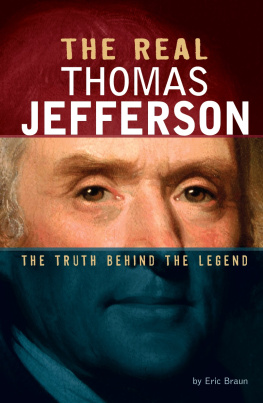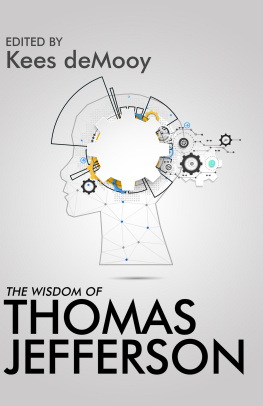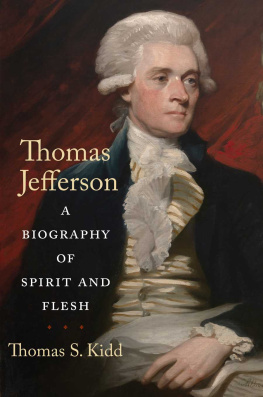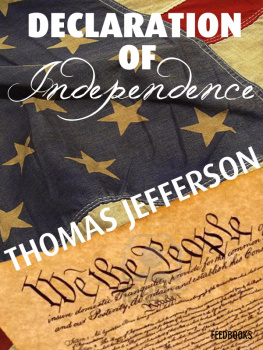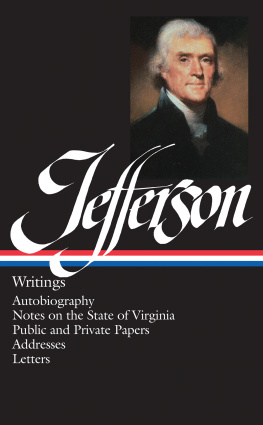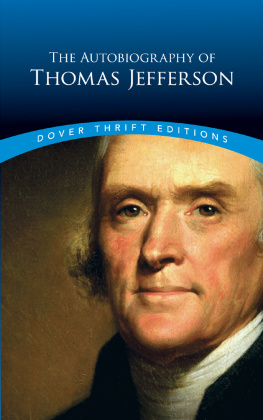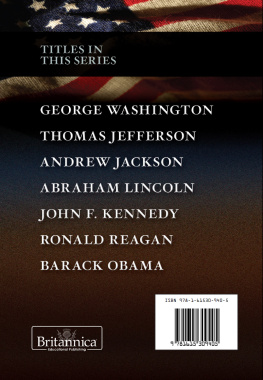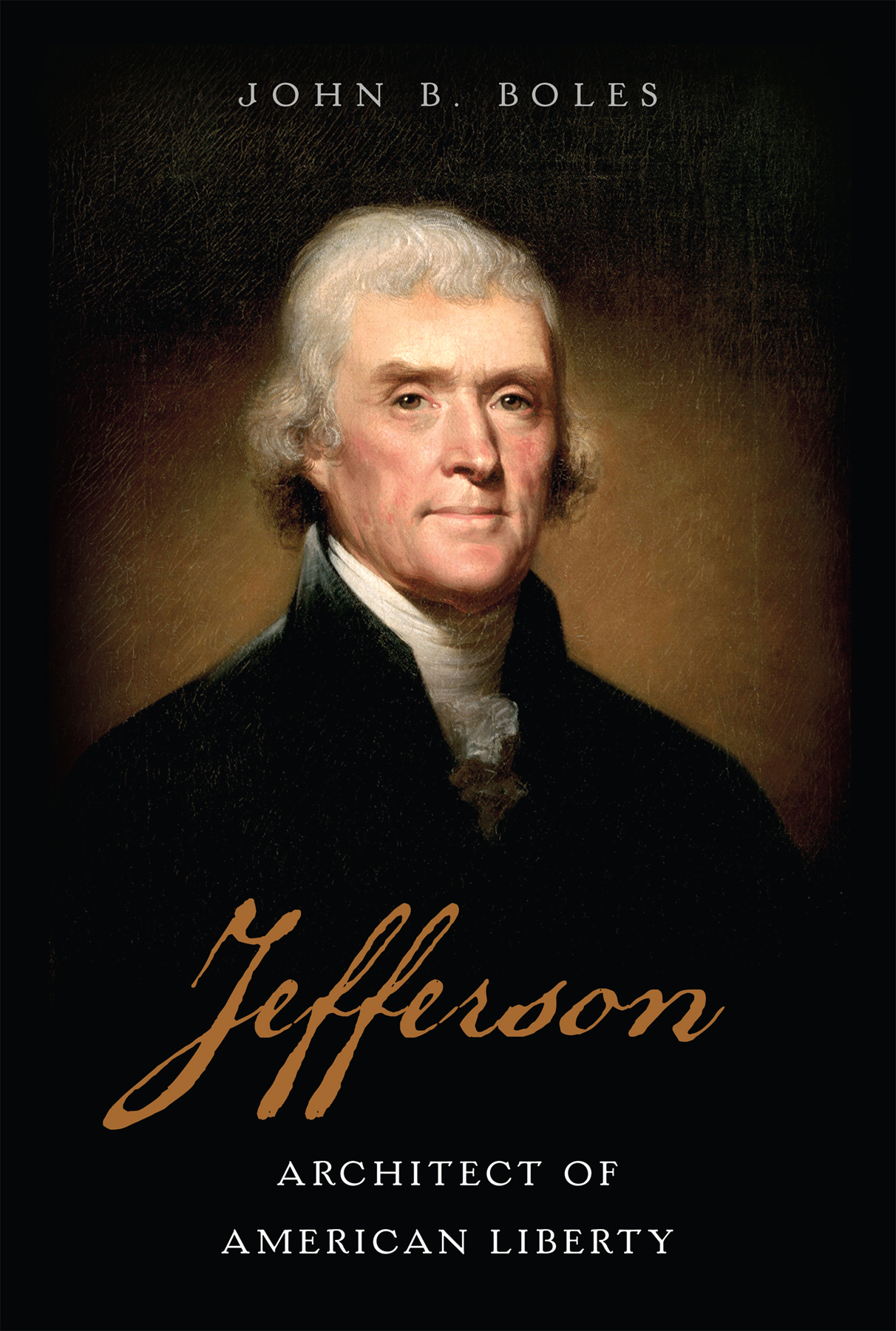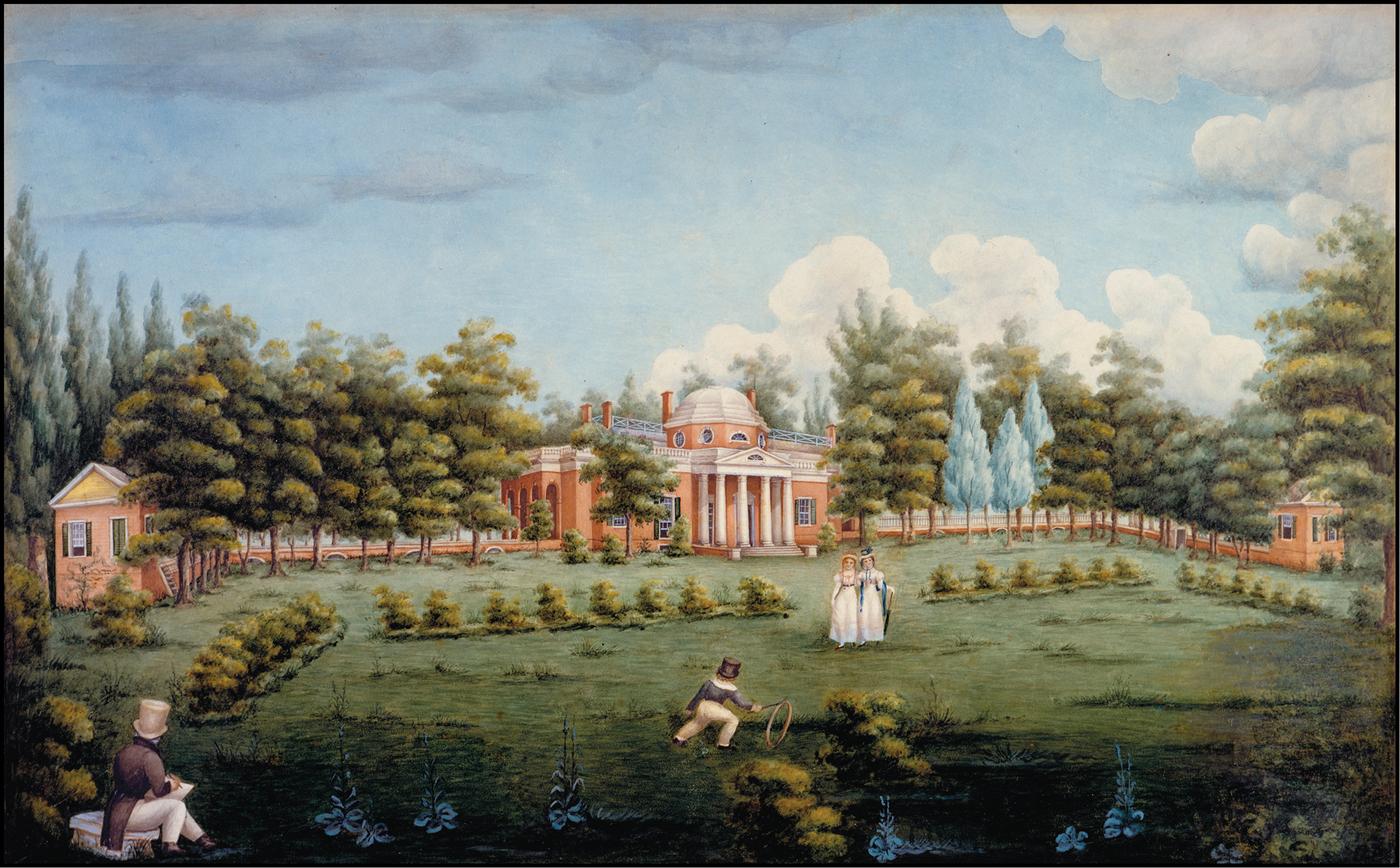Thomas Jefferson usually did not begin written sentences with capital letters. However, Julian P. Boyd, founding editor of the Papers of Thomas Jefferson (Princeton, 1950), silently capitalized the initial letters of Jeffersons sentences, and subsequent editors continued this practice until Volume 30, published in 2003. The editors of the following volumes rendered his writings exactly as Jefferson wrote them. I have decided to adopt the practice of the volumes I am citing; hence, in the letters from volumes prior to the thirtieth (which begins with January 1798), capitalization follows modern standards as established by Boyd. In citations of letters written after that date, I follow the usage of the editors and replicate Jeffersons almost capital-free style. I have only corrected Jeffersons sometimes idiosyncratic spelling when necessary for clarity.
T HOMAS J EFFERSON puzzles us. By birth, education, and demeanor an aristocrat, he was the most thoroughgoing democrat of the Founding Fathers. As learned and bookish a man as any other of his era, he himself only wrote one book (accidentally) and merely attempted, halfheartedly, to write an autobiography. The most widely traveled and cosmopolitan of the Founders, he never journeyed south of his home state of Virginia or farther than fifty miles west of Monticello. A hesitant, ineffective orator, he was a sensational conversationalist. Known around the globe for penning the words all men are created equal, he was a lifelong slaveholder. Critical of the very existence of mulattoes, he nevertheless had a long-term intimate relationship with a mixed-race slave woman, Sally Hemings, and fathered five children by her. Labeled a deist and sometimes charged with atheism, he came to believe himself a Christian, though of a special sort. Ridiculed as dreamy and philosophical to a fault, he was an effective political leader. Often praising the unique delights of his mountaintop rural retreat at Monticello, he in fact lived much of his adult life in Philadelphia, New York, Paris, and Washington, DC, and became a connoisseur of cities. He defies those trying to grasp him, down to the smallest details: famous as an oenophile, he preferred to dilute his wine with water.
How can one make sense of such a tangle of apparent contradictions? Surely not simply by picking and choosing one side or the other of these various binariesaristocrat or democrat, unqualified lover of freedom or unrepentant slaveholder, true wine lover or snobbish dilettante. Jeffersons complexity renders him easy to caricature in popular culture. Particularly in recent years, Jefferson, long the hero of small d as well as capital D democrats, has seen his reputation wane due to his views on race, the revelation of his relationship with Sally Hemings, and his failure to free his own slaves. Once lauded as the champion of the little man, today he is vilified as a hypocritical slave owner, professing a love of liberty while quietly driving his own slaves to labor harder in his pursuit of personal luxury. Surely an interpretative middle ground is possible, if not necessary. If we hope to understand the enigma that is Thomas Jefferson, we must view him holistically and within the rich context of his time and place. This biography aims to provide that perspective.
We should begin by acknowledging that Jefferson lived in a world fundamentally different from ours. It was pre-Darwinian, which is only one reason most people, in general, did not expect much change in their lives. Jeffersons society was, compared to today, remarkably undemocratic, even though it was more democratic than any other society of the time. Women, blacks, and propertyless white males could not vote. Rigid expectations governed what women could and could not do; blacks were hardly considered persons, and racial slavery was commonplace throughout the nation; class distinctions were assumed to be practically immutable. A new democratic age was dawning, but its implications were poorly understood, as were the consequences of new modes of trade and production that would soon remake the American economy and society.
Many of Jeffersons assumptions reveal him to be a man thoroughly of his own time, which sometimes surprises us because we imagine him as so ahead of it. In many ways he was, but not in all, and it is the partiality of his escape from the prevailing beliefs of his age that so disappoints us. His expectations about his own patriarchal responsibilities, his fears of monarchy, his worries about the survival of the new nation, and his apparent belief that only Providence could eradicate some evils shaped many of his responses to the world as he found it. Like others of his class, he cared about his reputation and hence was thin-skinned in the face of criticism; he was relentlessly, and sometimes misleadingly, polite, as the code of gentlemen required; he believed reason essential to correct judgment about most things; he supposed his views to be not only correct but representative of the best interests of the people and that they, when not misled, agreed with his policies. As much as we might wish, Jefferson was not a modern man.



